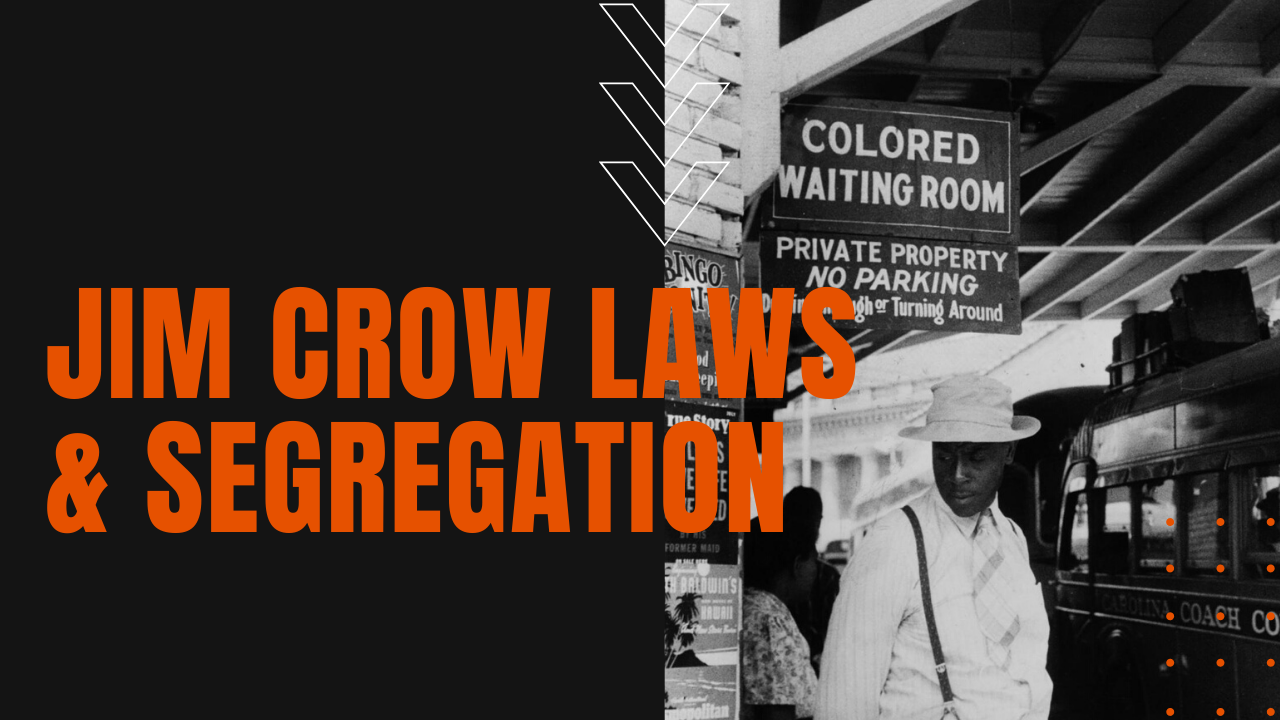Jim Crow Laws and The Segregated South

Named after a black minstrel show character, Jim Crow laws were a collection of mostly southern state and local statutes that legalized racial segregation, which were implemented shortly after the end of the Civil War and lasted until the civil rights protests and federal legislation of the 1960s.
The laws were intended to marginalize African Americans by suppressing their right to vote, limiting their access to good-paying jobs, while excluding access to higher education. Those who attempted to shirk the laws often faced arrest, fines, jail time, violence and even death.
Plessy v Ferguson: First Precedent For Jim Crow Law Repeal
In 1896, the first legal attempt to repeal Jim Crow laws was upheld in the case of Plessy v. Ferguson, in which the U.S. Supreme Court laid out its “separate but equal” doctrine, affirming racial segregation in public facilities, including the coaches of interstate trains and buses.
Facilities for African Americans were routinely inferior and underfunded compared to facilities maintained exclusively for whites, while the laws as a whole institutionalized economic, educational and social disadvantages for African Americans living in the South.
Segregation was also adhered to in the U.S. military, while in 1913, Southern Democratic President Woodrow Wilson initiated national segregation policies in federal workplaces.
Southern statutes continued to impose poll taxes on black Americans, attempting to suppress them from voting in local, state and national elections.
Brown v Board of Education
In 1954, segregation of state-funded public schools was declared unconstitutional by the U.S. Supreme Court under Chief Justice Earl Warren in the landmark case Brown v. Board of Education, yet most southern states dragged their feet for years before integration was finally achieved against great backlash from white southerners.
In 1964, the Warren Court continued to rule against Jim Crow laws in other cases such as Heart of Atlanta Motel, Inc. v. United States. The last vestiges of Jim Crow laws came to an end when they were overruled by the Civil Rights Act of 1964, followed by the Voting Rights Act of 1965, bringing an end white America’s long and stained history of racial suppression against black Americans.
